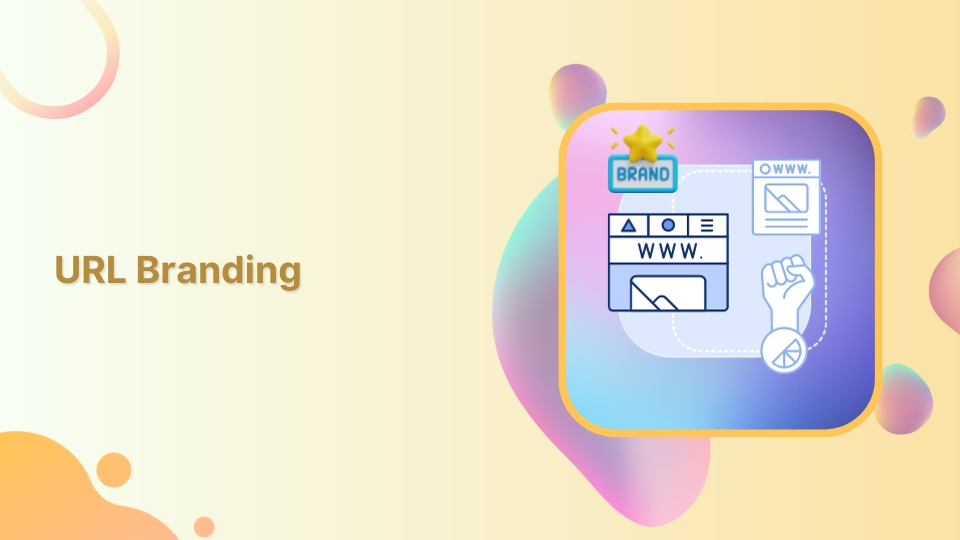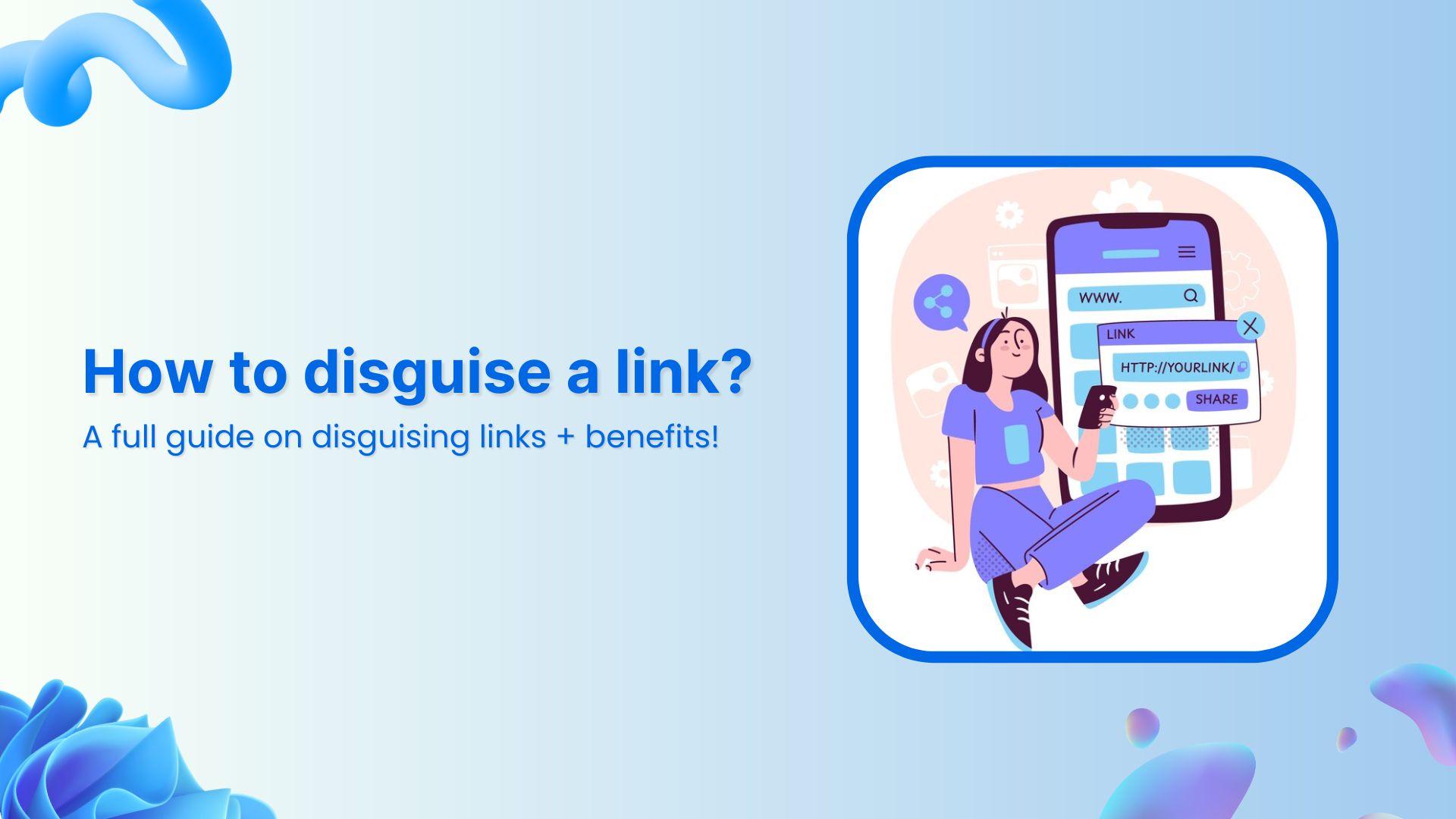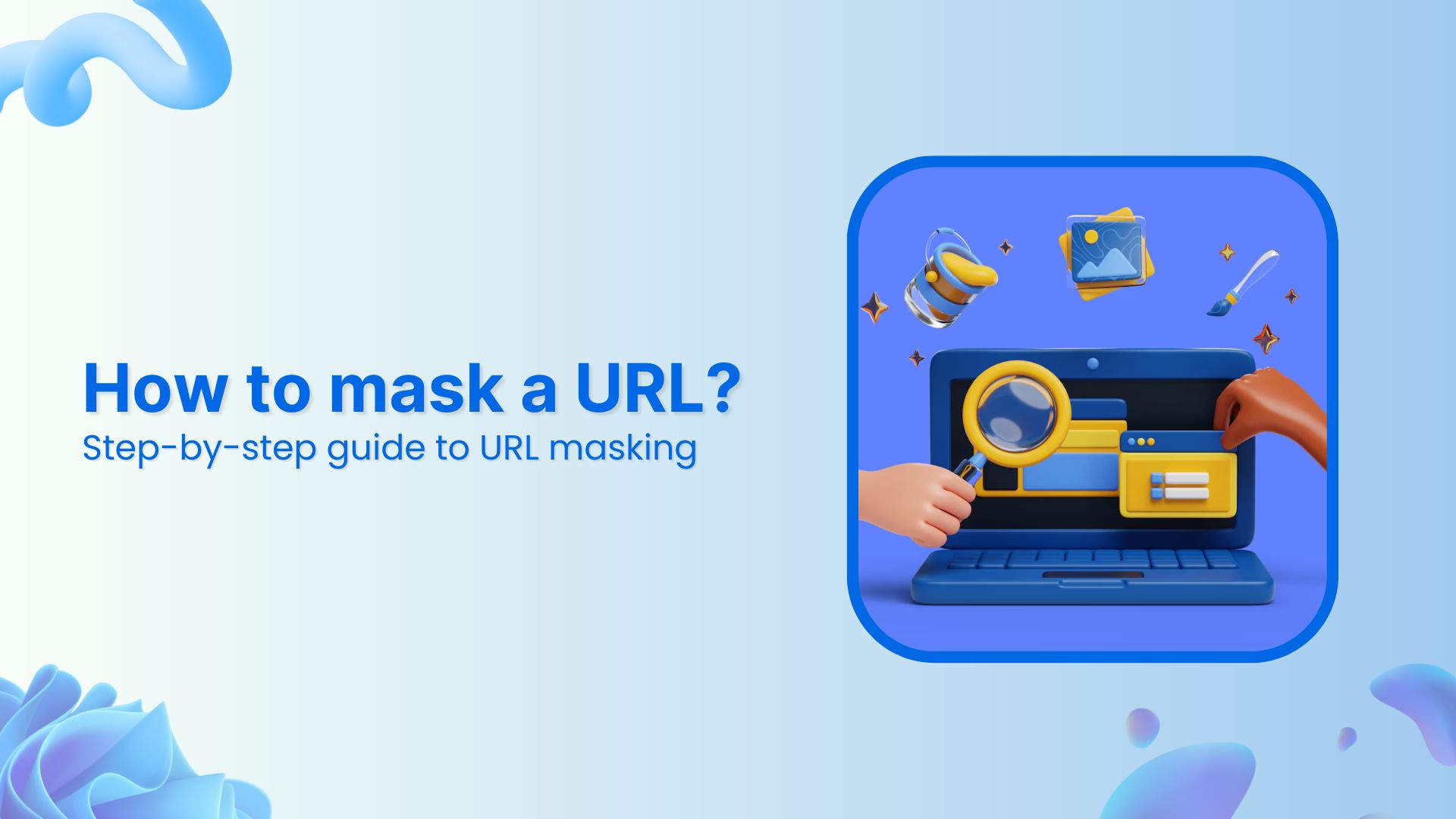What is URL branding?
URL branding is a custom short URL that brands use across different digital marketing avenues instead of their main URL. In simple words, it’s a short and sweet version of the domains that are easy to write, send, and remember.
Businesses, influencers, and entrepreneurs strive to dominate the digital marketing space and branding turns out to be an important part of the marketing arsenal.
Branding is everything a brand creates to get recognized in the market or stand out from the competition. It’s a combination of multiple things, such as logos, fonts, color schemes, design patterns, slogans, etc.
So, when a brand creates a custom brandable domain for marketing, engagement, or clickability, it’s called URL branding.

Brands create short and branded URLs for social media, email marketing, and online advertising. The reason why companies opt for URL branding is that it’s short, brandable, and memorable, which makes marketing and engagement easier than ever.
Thus, it makes it convenient for companies and marketers to distribute, track, and analyze their short links.
Does it sound interesting to you?
Let’s dig deeper into this!
Why is URL branding important?
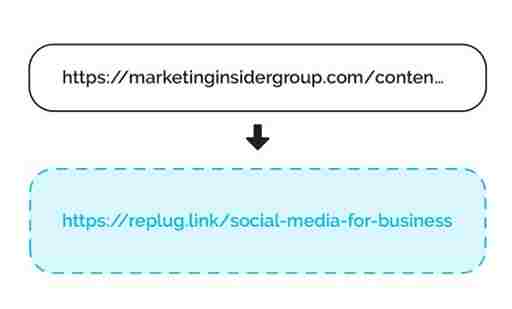
The competition is fierce in most online marketing areas, regardless of the industry. The pressure to build, establish, and grow a business is inevitable. So, business owners look out for any competitive edge that helps them ignite their business growth.
Branding, in any shape or form, does wonders for brands if done right. URL branding is a digital marketing strategy businesses adopt to shorten their long and clunky website URLs and use the short versions for print and digital marketing. The short URL redirects the visitors to the main URL, anyway.
To better understand “why” URL branding is important, it’s vital to look at the benefits it provides, what impact it adds to the digital marketing strategy, and why it’s better than unbranded URLs.
Let’s get into it.
Branded vs. Unbranded URL
Branded URLs are comparatively better than unbranded URLs. When brands use unbranded URLs, it means they’re using random URL shorteners or long and clunky URLs.
As a result, it doesn’t make much impact. These brands lose some engagement opportunities when they use unbranded URLs.
On the flip side, companies and influencers that use branded URLs cash in on the branding opportunities. The reason is that branded URLs are the short versions of their main domains, which does help in building brand recognition.
Most businesses opt for unbranded URLs because they don’t want any additional cost, so they rely on free URL shorteners or default long URLs.
All in all, branded URLs have several perks that make them better than unbranded URLs. However, for branded URLs, a brand needs to register a short domain and buy a link management tool’s subscription to create branded URLs.
5 key reasons to use branded URLs
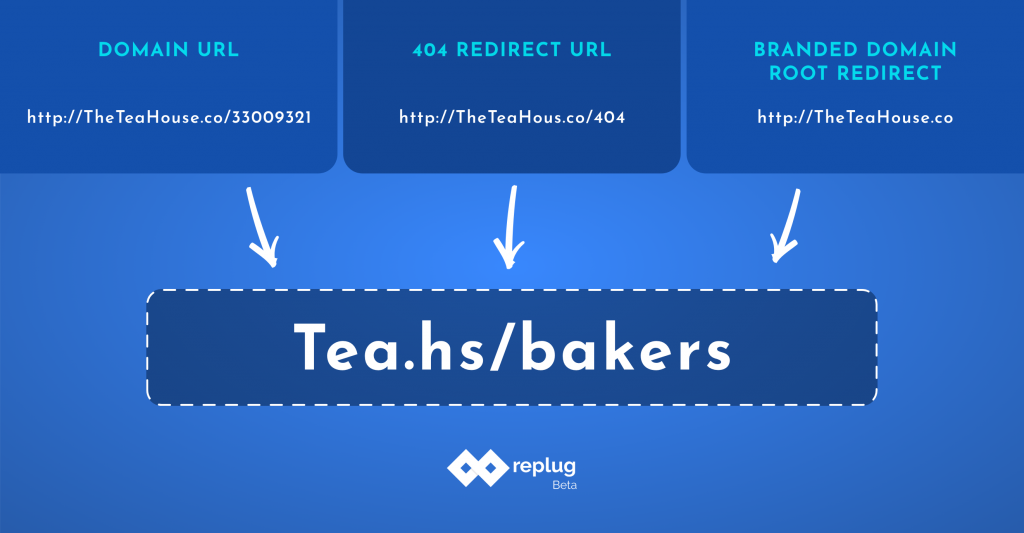
There are numerous reasons to use branded URLs. Take a look at some of them:
1. Showcases brand authority
Branding authority means brand reputation. It’s a multi-dimensional element that brands earn over time with their strategies, commitment, policies, and quality.
Branded URLs may seem like an ordinary digital branding strategy, but it does have implications beyond the digital marketing campaign. It creates an impact when a company or influencer uses a short, branded URL on social media, email newsletter, or print media.
So, a brand, a short domain helps contribute to establishing brand authority for businesses and individuals.
2. Adds trustworthiness
One of the benefits of a branded URL is that it provides companies and entrepreneurs an opportunity to earn trust in the digital marketing space. The reason is that every brand out there doesn’t go above and beyond to build an impactful brand image.
Creating branded URLs for social media and email marketing campaigns showcases that a business takes every part of the process seriously. That’s why they have put the work into coming up with branded URLs.
3. Helps in brand positioning
Brand positioning is how a brand creates its perception in the prospects and customers’ minds. Since branded URLs bring authority and trustworthiness to the brand’s campaign, they help businesses position their brands better.
Creating a positive perception of a business is an essential part of the branding strategy. A branded URL does help companies in positioning their brands in the eyes of their target audiences.
4. Drives traffic from print and digital sources
Website visitors mean business for most SAAS businesses and e-commerce stores. Since website traffic is the bread and butter of such businesses, they try to capitalize on every opportunity to drive visitors to their websites.
An important aspect of branded URLs is that they can drive website traffic rather easily. Brands and influencers come up with short, branded URLs for print media such as business cards, letterheads, pamphlets, and digital mediums like email, social media, etc.
5. Makes the URL memorable
Branding is essentially a process of creating perception and brand identity. Therefore, the website URL does have its role in making that brand identity.
One of the benefits of branded URLs is that they’re easy to remember, which helps brands and influencers in driving website traffic without putting out the main URL.
Importance of URLs as a digital strategy
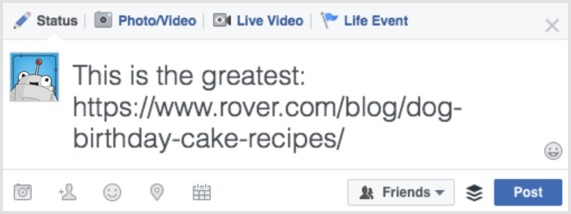
Do URLs matter? You might want to know what this fuss is all about. Well, URLs are important for every digital marketing campaign. And, if you’re focusing on optimizing, fixing, and managing URLs, then digital marketing strategy is at stake.
Let’s jump into the importance of URLs in digital strategy and understand why URLs matter so much.
1. On-page SEO optimization
SEO is an integral part of any digital marketing campaign, and on-page SEO optimization is always incomplete without creating an SEO-friendly URL structure.
On-page SEO refers to the website page optimization process that takes place on the website page instead of outside the website. It includes URL refining, content optimization, keyword insertion, image optimization, page loading speed improvement, and fixing the website copy.
The reason why on-page SEO optimization is crucial to a digital strategy is that a brand can’t dominate the SERP or beat the competition in the search engines if its website isn’t optimized from the search engine standpoint.
Ultimately, URLs should be short, sweet, and relevant to improve the SEO performance of a website. Make sure that there are no broken links, the sitemap is up and running, and the website is hosted on a reputable web host to ensure that everything is going in the right direction.
2. URL redirection setup
SEO experts might be able to write multiple chapters on the importance of URLs in their SEO books, meaning URLs are vital to the SEO game. A well-developed URL structure can drive an SEO strategy to new heights, which takes the brand’s digital strategy to the next level.
URL redirection is a process of directing website visitors from one page to another using URL redirection codes or plugins. In simple words, when a redirection is set up, the visitor automatically moves to the new page when landing on the older page.
URL redirection is key in several cases, for instance, you have deleted older blog posts and redirected the visitors to the newer versions of the blog posts or a company has rebranded into a different brand name and redirected the traffic to the new domain.
So, the importance of URL management is pretty clear in the URL redirection process, and most brands on the internet have to deal with URLs in their digital marketing campaign.
3. Driving social media traffic
One of the aspects of URLs that can’t be ignored is that they provide a roadmap to the website traffic to land on the website pages no matter the traffic source.
Besides the organic visitors from search engines, social media traffic also lands on the website pages using the URLs. Similarly, email marketing also drives website visitors to the landing page or blog posts – all of these traffic sources use URLs to drive traffic.
Clunky or dysfunctional URLs may create hurdles in driving both free and paid traffic to the website. Therefore, it’s essential to keep the URL structure clean and optimized to keep the flow of website traffic from social media and other sources smooth and effective.
3. Improving click-through rate
URLs are the medium of driving website traffic to the website pages regardless of the traffic source. Understanding the importance of URLs and implementing optimization techniques steer the digital strategy of a brand in the right direction.
Click-through rate (CTR) is a clickability metric that showcases the performance of a specific page URL or the overall website URL. In other words, it tells us the number of clicks the page or website has gotten from a specific source, such as Google or Facebook ads. To get the CTR, divide the total clicks by the total impressions.
Moreover, URL optimization is vital to improving the ranking and click-through rate in the SERP. It essentially contributes to the overall search engine optimization of the website.
CTR analysis and other link management operations may not be possible if URLs aren’t a part of the digital strategy of the brand.
4. URL tracking and reporting
URL tracking and reporting means taking a look at the URLs’ performance in the website analytics tool’s dashboard, such as Google Search Console or Usermaven.
Tracking URL wouldn’t have been possible without comprehending the importance of URLs while establishing an effective digital marketing strategy.
So, don’t sleep on the opportunities to analyze the website page’s performance as part of your digital marketing and branding strategy.
The above-mentioned points explain the importance of URLs in the wake of building a powerful digital strategy for a brand.
5 Examples of a URL branding
Here are five examples of the brands that incorporate URL branding:
1. ContentStudio
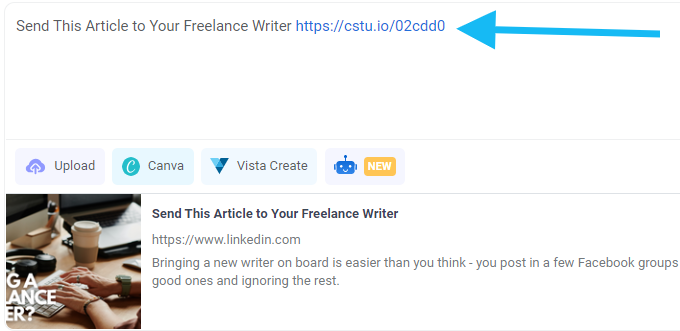
ContentStudio is an all-in-one social media management dashboard for publishing, scheduling, analyzing, and managing social media content.
This social media management tool uses its short domain (cstu.io) when shortening the URLs for the users while they post or schedule social media posts using this tool.
2. Squarex
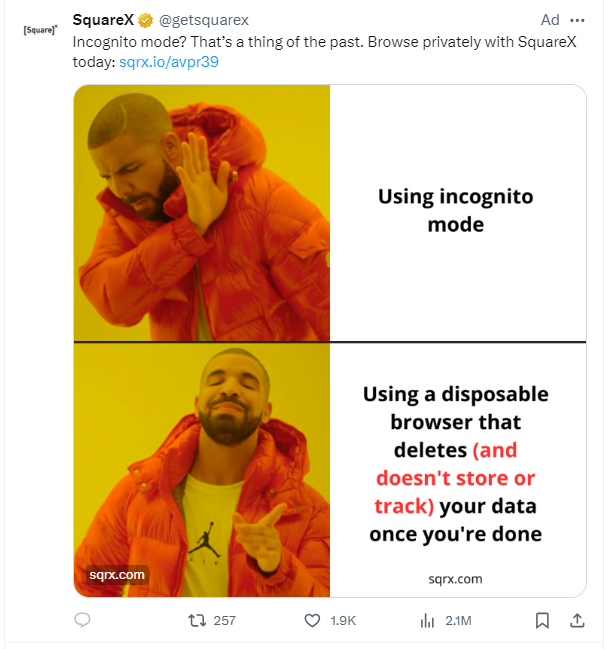
Squarex is a secure browsing tool that has taken the disposable web browsing experience to the next level. This company uses a short domain called sqrx.io across all its social media platforms.
3. Bet. me
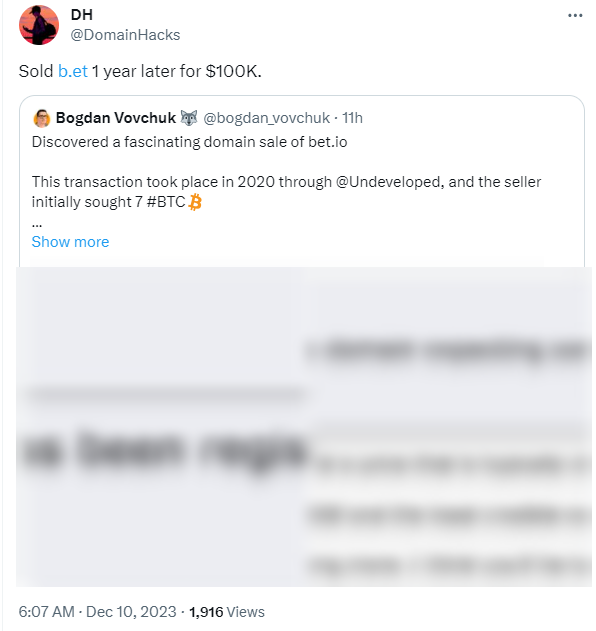
Bet. me is a UK-based betting exchange that provides insights on online betting. This brand runs both bet. me and b.et sites simultaneously.
4. Ubisoft
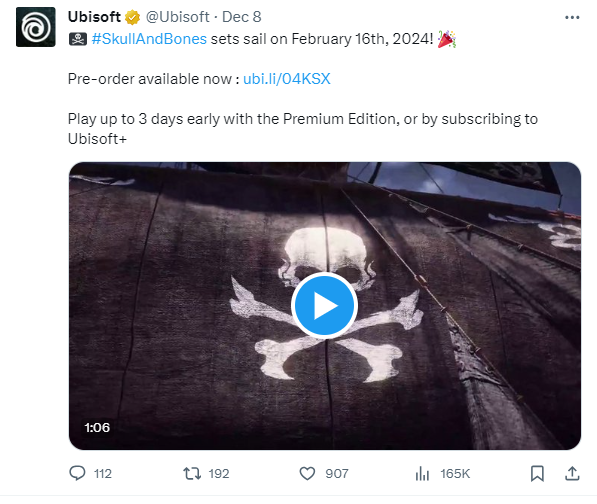
Ubisoft is a well-known name in the game development industry. They use ubi.li as a short, custom domain for sharing content on social media.
5. Xbox
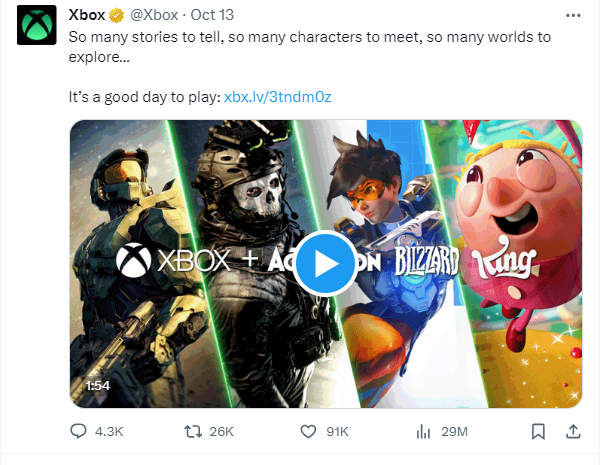
Xbox is a popular gaming console from Microsoft. They use xbx.lv as their short, branded domain for sharing Xbox-related news, updates, and other content.
These were five of the many examples of brands that use short, branded URLs.
How do I create a branded URL?
Are you wondering how to create a custom short URL or integrate your branded URL with your URL shortening tool?
Well, it’s not rocket science. All you need is to follow the below-mentioned steps and you’ll be all set to create your short, branded URLs within no time. Let’s cut to the chase and see how you can set a branded URL:
Here are the steps involved in creating a branded URL:
Get a domain for branded URLs
Already have branded domain then move on to the next step.
If not then….
Start with buying domain. It’ll be the first step in the process regardless of the URL shortening tool you use for setting your branded URL. Once registered, move on to the next step.
Connect your domain to your URL shortener
You’ll need a URL shortener to connect your domain to generate branded short URLs.
Since Replug is my favorite link management tool, I’ll be using this tool to showcase how you can create branded URLs for social media, paid ads, and email marketing.
Before you head over to the Replug dashboard, you must first connect your domain to the URL shortener.
Keep in mind that it’s a two-step process that involves configuring the DNS records and adding the custom domain to the Replug account.
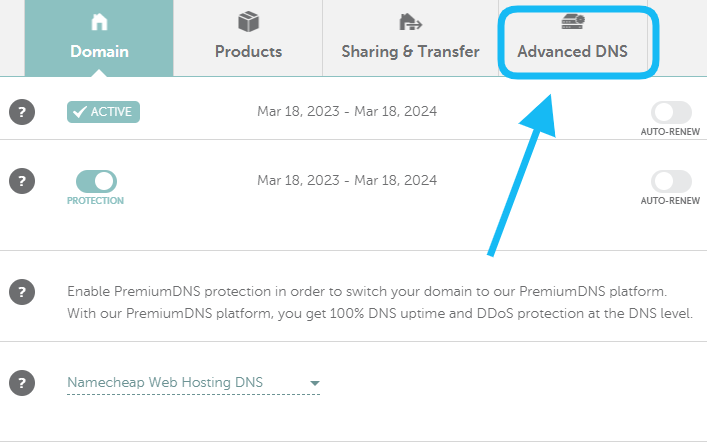
Go to your domain registrar account and access the DNS record for your domain.
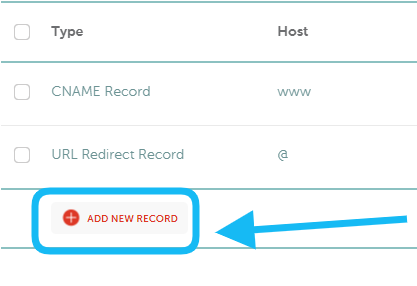
Look out for the option named “Add New Record” to configure the DNS settings.
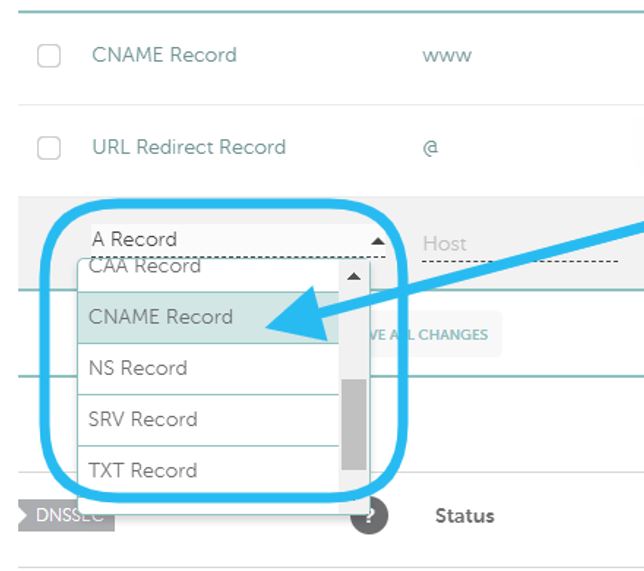
You might want to choose the CNAME record in your domain setting to configure it with your Replug account. To do so, click on the “Add New Record” option to include a new record.
Here are the exact DNS settings you should be adding to the DNS record:
| Record Type | CNAME |
| Hostname | @ or www |
| Point to (Address) | Short domain (URL) |
Make sure that the DNS settings are properly added. Once it’s done, head over to your Replug account to complete the process.
Add your domain to your Replug account
Once you have created the Replug account, log in to it to continue setting up the branded URL.
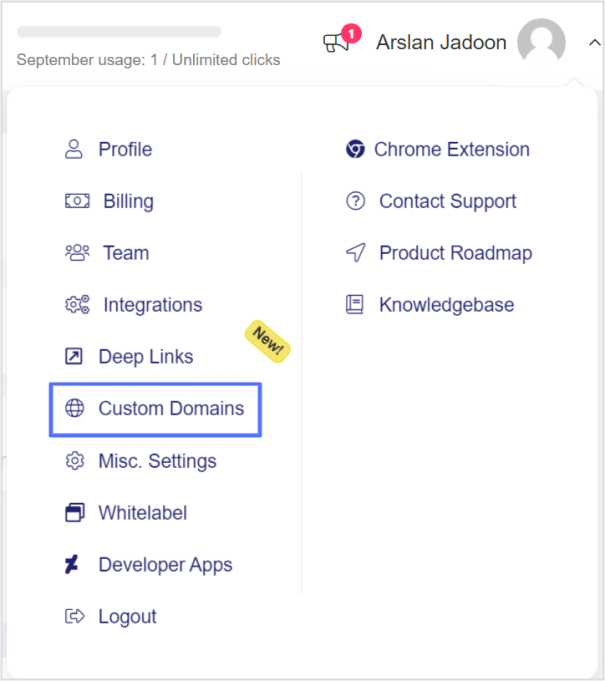
Now, head over to the custom domain configuration in your Replug account. To access the custom domain section, just click on your Replug profile icon inside the dashboard.
A drop-down menu will pop up, click on “Custom Domains” to access the custom domains section. This is the area where you would add a custom domain to your Replug account.
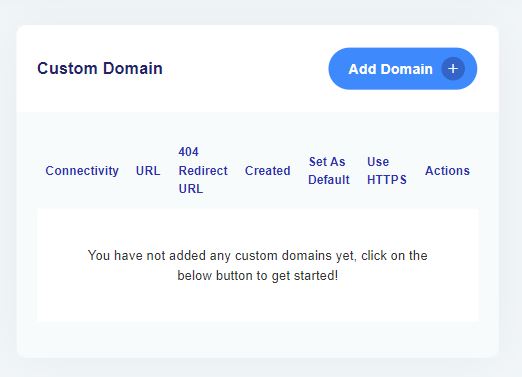
Click on the “Add Domain” button to add your short domain to your Replug account. A form would pop up, so fill up the form.
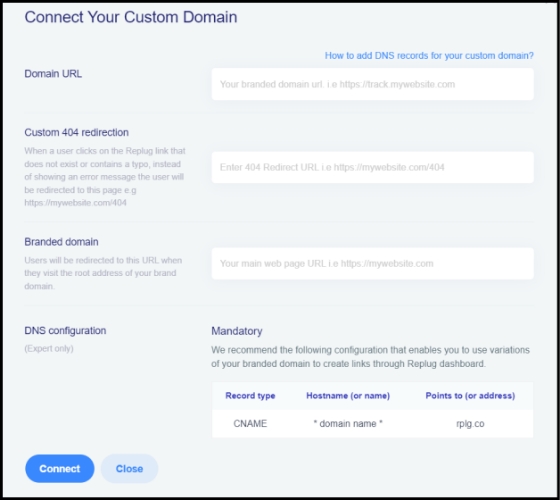
You’ll need to provide your branded URL, custom 404 redirection page URL, and main root URL for setting the short domain in your Replug account.
Create a brand & Campaign to get started with URL branding
Once the short domain is properly configured in your Replug account, you can create a brand and set up link management campaigns.
Note: It’s essential to create a separate brand. Otherwise, the shortened URLs will be assigned to a previously created brand in your account.
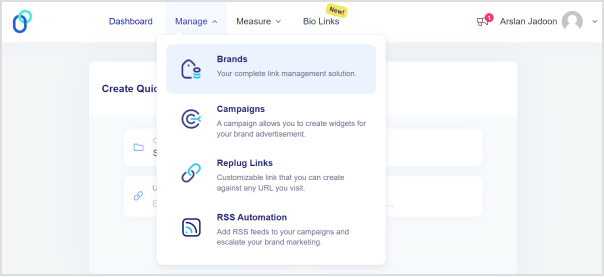
To create a new brand in the Replug account, go to the “Manage” section from the Replug dashboard and click on the “Brands” option from the drop-down menu.
Once you’ve landed on the brand’s page, click on the “New Brand” option to create one.
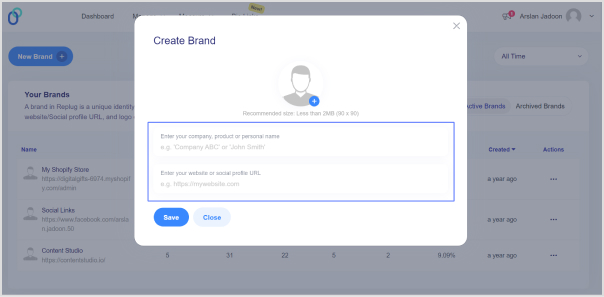
Once you click on the “New Brand” button, a pop-up menu will appear. Provide all the necessary details about the brand, such as the brand name and the website URL.
Once you’re done with it, press the “Save” button to proceed. That’s how you can create a new brand in the Replug account.
The next up is creating a new campaign using the brand you just added to your Replug account.
Go to the “Manage” section from the top menu, and access the “Campaigns” section.
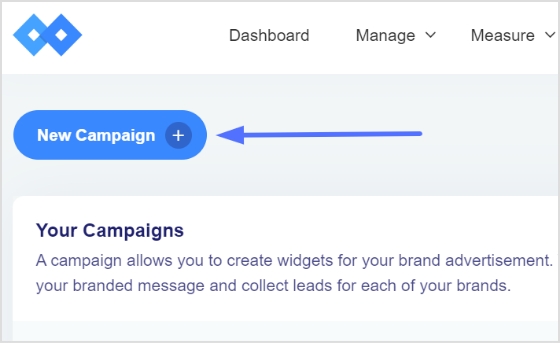
To create the campaign, click on the “New Campaign” button on the page.
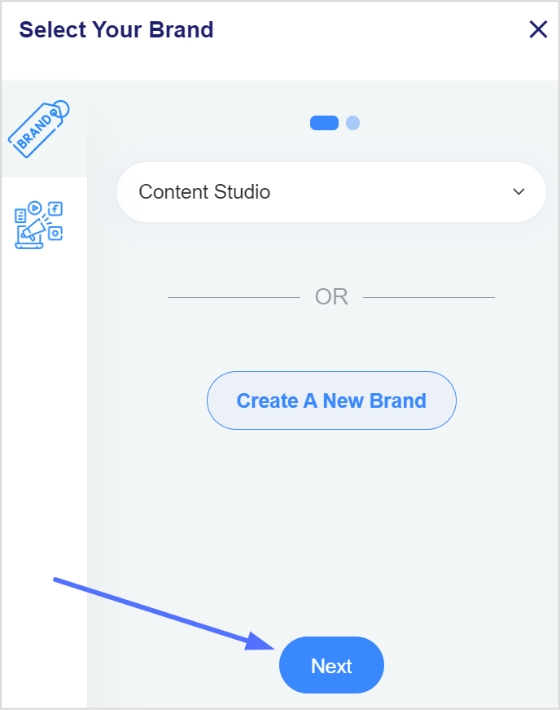
Now, select the newly created brand for this very campaign.
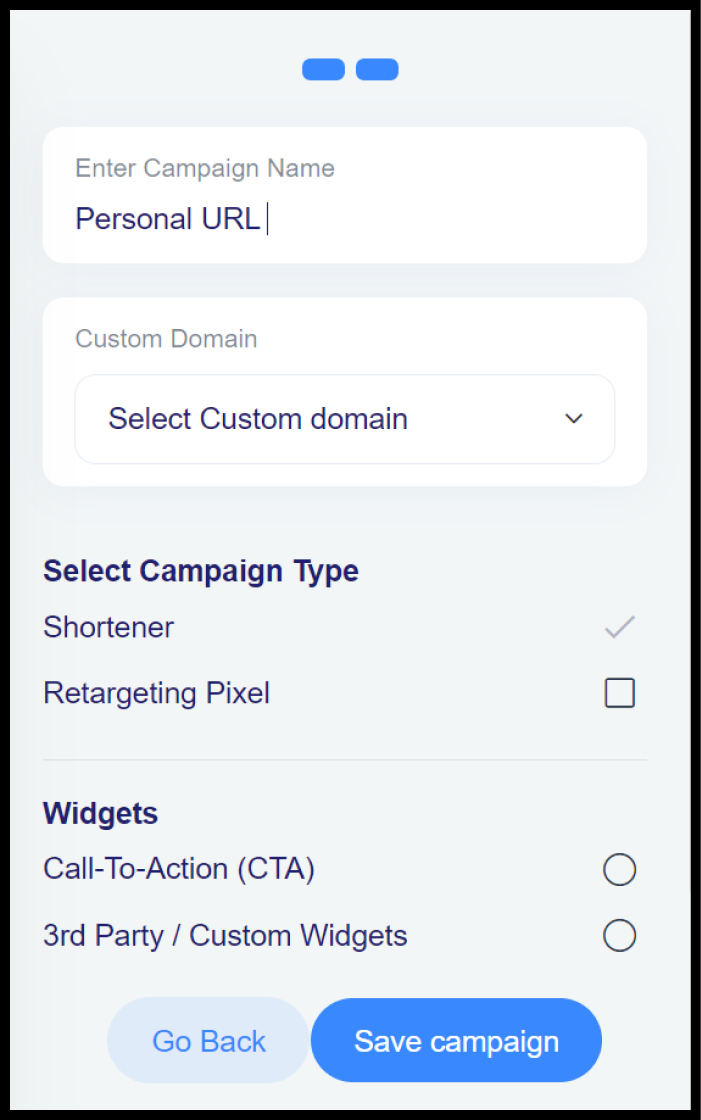
The next step is to enter your campaign name, your domain and campaign type.
Once you complete the above, then “Save Campaign”.
Branded Short URL
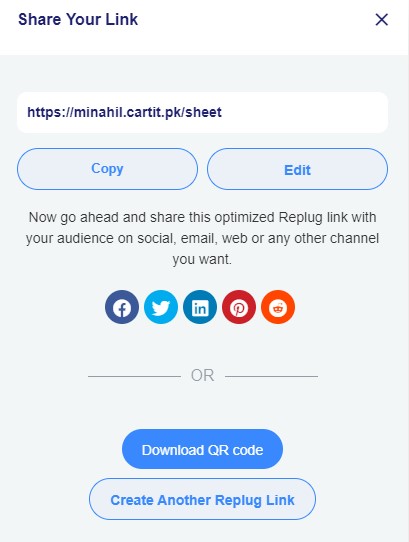
A short URL slug will be generated for your domain. You can edit the slug of your domain as shown in the example above, and start sharing and tracking your branded URLs.
FAQs about URL branding
Let’s take a look at some of the commonly asked questions about URL branding:
How much does it cost to own a URL?
Domain registration cost is approx. $10 to $40 across different domain extensions. However, from a URL branding standpoint, you may have to invest in a link management tool like Replug and find a suitable domain extension such as .io, .se, .co, or others.
Can a URL be copyrighted?
A URL is associated with brand names or trademarks, and registering or using someone else’s brand name in the website URL could lead to legal issues. It’s best to consult your lawyer for accurate information on this matter.
Can I sell a URL?
Domains are purchased and sold by domain investors across different domain platforms such as Sedo, Afternic, Dan, Epik, and several others. So, yes, you can sell a URL.
Can you patent a website?
It’s best to consult your lawyer for all the information regarding patents, trademarks, and copyright issues. The reason is that regulations and laws vary from state to state and country to country.
Can you use a brand name in the URL?
You can use a brand name in the main URL of a website only if you own the brand name or you have been granted permission by the brand to do so.



























